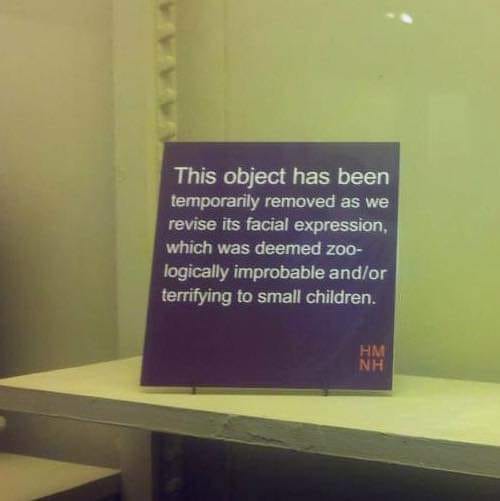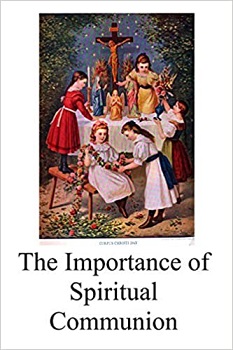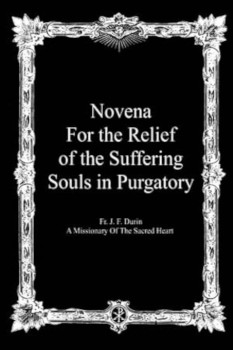
Volume VI/Issue 8/November 2021


From The Editorial Desk
These Turbulent Times
Dos and Don’ts
The Thanksgiving season is coming later this month. It will be followed very quickly by Christmas and the New Year. As one fellow said in my presence, “Yes, it happens just like that every year.” I laughed at his humor and immediately returned my thoughts to the joy and blessing of these special days.
In 2021, each of our nations and the societies where we live are in constant upheaval. These times are indeed turbulent times. In the United States, those who do not except God and have pushed their own crazy ideas have gotten control of much of the country. As a result things are coming unglued and falling apart.
In such times those of us who are solid Catholics need to be wide awake, holding firm and standing tall. I know the temptation is ever present to cower in fear and hope for the best. I can assure you “the best” will not come if we allow “the bad” apples to spoil the bushel.
So here are some dos and don’ts that seem necessary, and so very important, in “these turbulent times.”
1. Keep the faith!
Just as we trust Christ for salvation, we need to believe God even when things are going poorly. Remember, “...as it is written, The just shall live by faith” (Romans 1:17).
2. Pray earnestly!
So often “You have not, because you ask not. ” (James 4:2). “For the continual prayer of a just man availeth much.” (5:16).
3. Anchor scripturally!
The Bible—God’s precious, pure, preserved, powerful, inspired, inerrant and infallible Word is the road map in the hands of the Church for our existence on this planet. If the Church “does” what it says and “don’t” do what it disallows, it will keep us on the right path day after day.
4. Stay in church!
Since church (assembling ourselves), is God’s idea, you and I should not be considering some alternate idea. If our churches cease to function, our nation will collapse into total tyranny in a very short time.
5. Make Converts!
That is the first mandate of our Lord’s Great Commission (Matthew 28:19) and it is not only easily forgotten, but we have those telling us to do the opposite. We have a definite responsibility to go after people and lead them to Christ and His Church. (Acts 1:8).
6. Disciple, that is Catechize Converts!
Teaching the people everything Jesus taught us is also a significant part of the Great Commission (Matthew 28:20).
7. Stay true! (Jude 3).
What the Church teaches and believes, what She preaches and what She teaches are not negotiable. Whatever doctrine has been handed down to us should be heralded plainly and frequently.
8. Stand tall! (Ephesians 6:11–13).
We must raise our voices. We must sound the alarms. We must go out “in the world” but still be “not of the world” (John 17:11–16) as we “cry aloud, spare not” (Isaiah 58:1). These turbulent times demand a faithful and fearless stand which we take openly and boldly.
9. Stay encouraged! (I Corinthians 15:58).
Whether up on the mountain or down in the valley, give no place to discouragement, despair or defeat. Keep your eye on the sky, looking for Christ return and your hand on the plow. If you let the Devil and his crowd get you “down,” you will not be able to be the vibrant Christian you should be.
10. Keep pressing on!
If clouds obscure the sun, press on. If critics and cranks assail you, press on. If you fight a battle and lose, press on. If you feel alone and lonely, press on. If you think there’s no use, just keep pressing on (Philippians 3:13,14).
So, yes, some dos and don’ts seem to be necessary in “these turbulent times.” Let’s not let the times define us. Let’s remember whose we are and give Him our best no matter how crazy our world gets.


Spiritual Sins Are Worse Than Sins of the Flesh
Now the works of the flesh are manifest, which are fornication, uncleanness, immodesty, luxury, idolatry, witchcrafts, enmities, contentions, emulations, wraths, quarrels, dissensions, sects, envies, murders, drunkenness, revellings, and such like. Of the which I foretell you, as I have foretold to you, that they who do such things shall not obtain the kingdom of God. (Galatians 5:19-21)
Henry Edward Cardinal Manning wrote: "At first sight some may wonder why St. Paul after summing up a black list of the sins of the flesh adds “enmities, contentions, emulations, wraths, quarrels, dissensions, sects,” and closes with “murders, drunkenness, revellings, and suchlike.” (Galatians 5:19-21) In truth, the spiritual sins of “enmities and dissensions” are more Satanic than the sins of the flesh, for Satan has no body; and they are more at variance with God, because they are spiritual, and God is charity."
"Let no temptation take hold on you, but such as is human. And God is faithful, who will not suffer you to be tempted above that which you are able: but will make also with temptation issue, that you may be able to bear it." (1 Corinthians 10:13) The sins of the flesh are human as Jesus observed: "Watch ye, and pray that you enter not into temptation. The spirit indeed is willing, but the flesh is weak." (Mark 14:38)
Let us consider, the flesh is weak, even when the spirit is willing. What will happen, if the spirit is not even willing, but prefers spiritual sins, such as enmities and contentions? If the spirit is not willing, then the flesh will have its way, although spiritual sins often lead to hypocrisy. Many, who are pure in the flesh are spiritually dead. The Devil does not care what sin he has entrapped us with. He will give us chastity, if he has ensnared us in pride. We will become proud of our chastity, like the Pharisee in Scripture. (Luke 18:10ff) We will become whited sepulchers. (Matthew 23:27)
Many today, who are pure in the flesh, dismiss these spiritual sins as mere trifles. Let us apply some simple logic to this. We know that sins against the sixth commandment are mortal sins. Henry Edward Cardinal Manning has just told us that this litany of spiritual sins are worse than sins of the flesh. Therefore we should conclude that they are mortal sins as well. And so let us consider several of these sins, so that we can ask God to help us root them out of our lives.
Enmities also mean feuds and hatred. Let us consider why we drive a wedge between our own self and another person or other people. We do so out of pride, which we know is a mortal sin and far worse than mere sins of the flesh. Jesus is clear, when He says: "But I say to you, Love your enemies: do good to them that hate you: and pray for them that persecute and calumniate you:" (Matthew 5:44)
Contentions, which are quarrels and discord, flow from our enmities and hatred of other people. Why do we quarrel? We quarrel out of pride, because we are not getting our own way. Let us pray: "Not my will be done."
Emulations mean jealousies. Again what is behind our jealousy? We are thinking pridefully, why am I not getting what Joe next door is getting? In the United States a very bad thing arose in people's thinking. It is called 'Keeping up with the Jones.' If Fred Jones gets a new car, we go out and get a better new car. If Fred gets a 40 inch TV, we go get a 45 inch TV. We must appear better than our neighbor, but are we truly better? Have we sinned to get these things? "Remove far from me vanity, and lying words. Give me neither beggary, nor riches: give me only the necessaries of life:" (Proverbs 30:8) A person's value is not measured by possessions, but by virtue.
Wrath means anger. We get angry, when we do not get our own way; when we don't get what we want. Anger is certainly a serious sin, which many excuse. Many rant and rave about the injustices in the world, claiming we have a right and even a duty to be angry about such things. Rather than rant and rave about the injustices in the world, shouldn't we be doing what we can to make the world a better place to live? Let us face it, there are many things we can do nothing about today, but there are places we can accomplish something. It is our pride that causes us to rant and rave rather than do something positive. Ranting and raving are a waste of time. There are far better things to do, which include nothing. Yes, we should pull away and do what the world considers worthless, but we know is most important; pray.
Quarrels, rivalries and selfish ambition flow from all of these spiritual sins as do dissensions, sects and envy. Let us consider well that all of these sins are serious and must not be a part of our lives.
If the Devil is not tempting us with sloth, gluttony or lust, then let us examine ourselves seriously in these areas. The Devil is trying to lead us astray, and if we have fallen into one of his traps, he will stop l\tempting us elsewhere. If we have no apparent temptation, let us come before God and ask Him where we are wrong, because we certainly are.
A story is told of a man, who was give the ability by an angel for a day to see the devils. He first went to visit a monastery and the place was crawling with devils. Then he came to the gate of a small town. There was a devil sitting at the gate on a coffee break. He inquired of the devil why he was alone in the town. The devil replied: "I already have them," and explained that at that moment two women were having a quarrel, while a man was cheating another in business.
Does the devil have you?


Discernment of Spirits
However, That is not always the case. There are good parents yet, there exists a black sheep in the family. Among the disciples of our Lord Jesus Christ, there manifest a Judas who betrayed Him. What was wrong with the Lord? Nothing is wrong with the Lord. The wrong or the evil was planted by Satan himself. Evil exists in this world because of Satan and his cohorts.
But the problem with evil is that it is very cunning, so deceptive which easily prey even the chosen ones. Remember Saint Paul said that Satan can appear as an angel of light. Therefore, As soldiers of Christ, we need to be very discreet. We need to ask for the grace of wisdom to discern which really comes from the Lord or not from the Lord. We need discernment to distinguish the weeds among the wheat.
Come O Holy Ghost, enlighten the darkness of our minds and give us a correct faith, sense and knowledge that we may carry out your will. Amen.

3 Hail Marys and the Monkey Under the Bed.
In the city of Naples in the early fifteenth century, a certain distinguished gentleman began to entertain the modern notions of the day critical of the Catholic Church. Soon he had abandoned the practice of the Faith and was causing great scandal among the faithful for his open ridicule of those who frequented the Sacraments and practiced popular pious devotions.
Nonetheless, his affairs prospered, as so often happens among the men of this world. He became famous for the marvelous feasts and parties that he frequently hosted in his palatial residence. Of particular interest to all was an unusual little steward who would serve the astonished guests. Dressed in a charming red velvet and gold braid vest and hat, serving plates with perfect propriety, and then offering charming displays of acrobatics, was none other than a grinning little monkey!
It was the talk of the city, and many of the ladies who pleaded with their husbands to accept the invitations to a feast put on by the avowed agnostic so that they might witness the marvelous sight! Before too long, the gossip about the strange steward reached the ears of a parish priest renowned for his holiness and virtue. But instead of dismissing the talk or issuing warning about attending the parties of one so opposed to the Holy Church, the priest asked to receive an invitation to the next gala event to see for himself the truth of this talk.
The host at first desisted – none of those foolish, sour-faced clerics would set foot on his premises! But in the end, his spirit of pride conquered: he wanted to flaunt the feats and antics of his devoted little four-footed servant to the credulous priest. The invitation was issued. The evening arrived, and the priest rang at the bronze gates of the palace some time after the festivities had begun.
“A priest begging leave to enter my hall,” his jovial host remarked at his entrance. “Will wonders never cease! But, indeed, this is a house of wonders.”
“Yes, so I have heard,” the priest calmly replied. “And truly I must say I am interested to see this amazing sight of a monkey who serves a man.”
The host immediately rang his special silver bell that called his peculiar steward to his presence. But the monkey, who only moments before had been charming a group of ladies with his antics, did not appear. The baffled host shook his head in amazement. This was the first time it had failed to respond to his call. The priest insisted: he had come expressly to see this strange sight and would not be deprived of the pleasure. The host called again. No reply. The monkey seemed to have disappeared. A search of the house was made, and finally the creature was discovered, shaking in his velvet suit under the bed of the host. It was dragged out from under the bed, the little creature trembling and struggling to escape the presence of the priest.
“Now,” the priest demanded, “I command you in the name of the Almighty God, Three in One, to tell your master who you are and what is your purpose in this house.” Forced to obey, the furious, still trembling monkey spat out these words to his shocked master: “I am no ordinary beast. I am a demon from hell who has taken on the form of a monkey who attends to your every bid and call. And so I do, but I await under your bed every night for the first night that you might leave off that abominable custom taught to you by your mother of saying three Hail Marys before you retire. For then, and only then, do I have permission to strangle you in your sleep and drag your soul to the eternal fires.”
With these words spoken, the writhing monkey disappeared. The arrogance and mocking manner of the host faded with the wretched creature. Ashen faced and shaken, he turned to the priest. “Ah, my fortunate man,” the holy man said. “For fortunate indeed you have been to have retained this small devotion to the Mother of Mercies, who never abandons even the most wretched who have recourse to her.” He heard the confession of the man, who became a model of faith in the city and was especially renowned for his tender devotion to the Virgin Mary.
How many of us in our journey through life have felt the presence of a monkey under our beds? And how many of us have experienced the goodness and mercy of Mary, who until the end of the world will never cease relieving the miseries of man and flying to their aid to return them to the path of truth, the Holy Catholic Church? The Mother of Mercy, she stays the hand of justice of her divine Son for all who invoke her, even for three Hail Marys.
This story is proof of the words of St. Bernardine de Bustis: “This great Lady is more desirous to grant us graces than we are desirous to receive them.”

The Nativity Fast
Faithful Catholics of the Byzantine Rite find themselves at the beginning of the Nativity Fast already. This fast gives us forty days in which to look forward to the celebration of the great feast of our Lord’s Nativity, forty days in which to prepare ourselves.
You see the fundamental difference between the mindset of the Church and that of the secular world in the fundamentally different ways in which they approach the celebration of the Feast of the Nativity. The secular world has already begun their celebration, such as it is. No preparation necessary, nor foresight. And at the stroke of midnight on December 26th, it all ends abruptly. That’s the way the world does things.
The Church, however, invites us to prepare ourselves. To get ourselves ready. And when the great feast comes, it is only the beginning of the celebration. The feast marks the start of the celebration, and the joy spreads itself through the following days and weeks.
With the world, you have immediate enjoyment and abrupt disappointment. With the Church, you have reasoned preparation, and then extended enjoyment.
So how do we prepare to celebrate the feast? One who is training to undertake a physical endeavor will prepare himself to be as strong and as healthy as he can, to be ready to give his best in what he plans to do.
So we, too, who must prepare ourselves spiritually, we must seek to be as strong and healthy as we can, in order to give our best as a fitting gift to our Lord at His Nativity.
And strength and healing is exactly what we hear about in one of the Sunday Gospels read recently, in which we hear of the healing of the woman who had suffered from an issue of blood for twelve years, as well as the great miracle of our Lord raising the young daughter of Jairus from the dead.
Two instances of healing in the Gospel - two great lessons for us to learn if we, too, are to be spiritually healthy in our great preparation during the Nativity Fast.
In the Gospel, we hear of a local leader of the synagogue, named Jairus, who comes to our Lord and tells Him that his daughter, not yet twelve years old, was lying near death. And our Lord sets off immediately to Jairus’ house.
And a great crowd was thronging around, and following the Lord as He went. And among them was a woman, who as the Gospel tells us, had suffered from an issue of blood for twelve years, and had spent all she had on physicians, trying to be cured, and nothing worked. But she said within herself that if she could only but touch the hem of our Lord’s garment, she would be healed. And she came up behind the Lord, while the crowd was pressing all around, and touched the hem of His garment, as was, in fact, healed at that moment.
And our Lord stops, and asks who it was that had touched His garment, for He knew that virtue had gone forth. And He constrains the woman to come forward and announce what she had done and why. And the Lord, in fact, then praises her for her act, and says: Daughter, thy faith hath made thee whole; go thy way in peace.
We see in this woman an answer to our own difficulties, our own sicknesses, our own spiritual diseases. We may spend years suffering, we may spend time, money, our own substance looking for an answer here in this world, here with material means… But what is necessary is to be close to our Lord, to reach out to Him. It need not be anything grandiose, we don’t need to make a show of overcoming our own interior “issues,” as it were… we need only touch the hem of our Lord’s robe, knowing that from Him comes the power to heal. Faith opens the doors of the heart so that it might enter in.
If we seek relief from the passions, from sinful habits, from temptations, from the assault even of our own memories… then let us with the same faith as the woman in today’s Gospel say within ourselves that if we but touch the hem of His garment, we will be made whole. For that is the truth. That is where we will find our healing.
Of course then, we hear that news comes to our Lord and to Jairus that Jairus’ daughter had died. Our Lord was undaunted, and He continued to the house. And those who were there laughed Him to scorn when He declared the young girl to be sleeping. But so, indeed, she was – sleeping in wait for the sound of the voice of Life Himself, who then by His word raises her from the dead, and gives her to her parents, and bids her parents to give her to eat.
So it is the same with us. Each of us have by the word of God and the waters of Baptism been raised from the death of sin. So it can be for everyone in this world.
How often are we all too quick to laugh the Lord to scorn at the thought of a sinner being raised again from the death of sin to new life? Don’t we do that every time we choose sin over grace? Don’t we do that every time we ourselves stand in judgment of another person, stand in judgment of whether or not they are worthy God’s grace?
We are none of us worthy. But we are all of us called. Just as our Lord called to the young girl, and she who was dead heard the voice of Him Who is life and arose, so also does He call us all today.
So as we enter into this period of fast, let us resolve to be firm in faith and to have the unshakeable knowledge and conviction that if we but open our hearts with faith and touch the hem of our Lord’s garment, we can be healed; that if we but open our ears to His call, we can be raised to new life.

Israeli mom killed by her son for converting from Islam to Christianity, prosecutors say
A 46-year-old woman was found dead in a section of the Jordan River in Northern Israel the day after her son, in his late 20s, murdered her because she converted from Islam to Orthodox Christianity, prosecutors say.
The suspect, Muad Hib, 27, reportedly used a rope or his hands to strangle his mother, Rasha Muklasha, until she died, police reports and court documents allege of the Aug. 5 incident.
According to The Times of Israel, the indictment alleges that Hib dug a pit, buried the body and covered the spot with rocks and dry leaves "all to obscure the body's location and make it harder to locate."
Hib was charged for premeditated murder.
Facebook Banning Christians but Allowing Sex Traffickers on Platform
While Facebook is known for cracking down on accounts linked to Christians and politically conservative individuals and groups, the platform is doing little to stop criminal organizations that use the networking site to profit off sex trafficking, said entertainment critic Ted Baehr....Facebook employees sent numerous alerts to their bosses to report on human traffickers in the Middle East and armed groups in Ethiopia that are using the platform for sex trafficking and inciting violence against ethnic minorities, according to internal documents released by the Wall Street Journal in an investigative report.
Facebook was informed that a Mexican drug cartel was using the platform to recruit, train and pay hitmen; but the company didn’t stop the cartel from posting on Facebook or Instagram, the documents show....In the U.S., Facebook and other social media platforms use Section 230 of the U.S. Communications Decency Act to protect themselves from lawsuits over what users post online. One of the clauses of Section 230 states that what users say or write online is not akin to a publisher conveying the same message. However, the same clause that shields online platforms from liability is often used to ban conservative viewpoints.
—Anugrah Kumar, christianpost.com
DOJ slammed for likening concerned parents to domestic terrorists
The U.S. Department of Justice is facing immense pushback for suggesting that parents opposing the teaching of controversial curriculum in public schools are akin to domestic terrorists.
On Monday, U.S. Attorney General Merrick Garland sent a memorandum to federal law enforcement agencies “directing the Federal Bureau of Investigations, working with each United States Attorney, to convene meetings with federal, state, local, Tribal, and territorial leaders within 30 days” to “facilitate the discussion of strategies for addressing threats against school administrators, board members, teachers, and staff.”
The memo cites a “disturbing spike in harassment, intimidation and threats of violence against school administrators, board members, teachers, and staff” as the justification for a federal response.
However, many have noted that it's the parents who've often been harassed and intimidated.
Loudoun County school board member Beth Barts, for example, was censured for attacking parents and was subsequently recalled. An investigation found that she plotted to go after outspoken parents she disagreed with by encouraging people in a Facebook group to “hack” the parents, which led to her being stripped of her committee duties, The Daily Wire reported.
Christopher Rufo, a senior fellow at the Manhattan Institute, a conservative think-tank, alleged a more sinister motive behind the DOJ's memorandum. He warned that Garland “has instructed the FBI to mobilize against parents who oppose critical race theory in public schools, citing ‘threats.’” The memo’s publication comes as frustrated parents and community members have confronted their local school boards over allowing critical race theory as well as sexually explicit material to be taught to children.
“Neither the Attorney General’s memo nor the full Justice Department press release cites any significant, credible threat,” Rufo said in a Tweet. “This is a blatant suppression tactic, designed to dissuade citizens from participating in the democratic process at school boards.”
Atheist group FFRF demands NC school district stop holding Christian prayers at meetings
The atheist group Freedom From Religion Foundation has demanded that a school district in North Carolina quit the practice of beginning meetings with Christian prayers.
The Union County Board of Education received a letter from the Madison, Wisconsin-based atheist organization demanding that it stop offering Christian prayers at school board meetings.
“The Union County Board of Education has received the letter from the Freedom from Religion Foundation and is evaluating the request,” read a statement from school district spokeswoman Tahira Stalberte to The Christian Post.
Last week, FFRF sent a letter to Michele Morris, general counsel with Union County Public Schools, expressing opposition to the board’s practice of allowing Christian clergy to open meetings with prayer.
“We write to remind the Board that opening school board meetings with prayer is unconstitutional and to request that it end this practice immediately,” wrote FFRF staff attorney Christopher Line to Morris.
“Board members are free to pray privately or to worship on their own time in their own way. The school board, however, ought not to lend its power and prestige to religion, amounting to a governmental endorsement of religion which alienates non-religious Americans.”
In 2014, the United States Supreme Court ruled 5-4 in Town of Greece v. Galloway that prayers, even sectarian ones, could be given at government meetings.
“The Court must decide whether the town of Greece, New York, imposes an impermissible establishment of religion by opening its monthly board meetings with a prayer. It must be concluded … that no violation of the Constitution has been shown,” wrote Justice Anthony Kennedy for the majority.
“As practiced by Congress since the framing of the Constitution, legislative prayer lends gravity to public business, reminds lawmakers to transcend petty differences in pursuit of a higher purpose, and expresses a common aspiration to a just and peaceful society.”
However, in 2018 a three-judge panel of the U.S. Court of Appeals for the Ninth Circuit upheld an injunction against a California school district’s practice of allowing school-sponsored Christian prayers at meetings.
“The Board's prayer policy and practice violate the Establishment Clause. The invocations to start the open portions of Board meetings are not within the legislative prayer tradition that allows certain types of prayer to open legislative sessions,” read the panel ruling.
“This is not the sort of solemnizing and unifying prayer, directed at lawmakers themselves and conducted before an audience of mature adults free from coercive pressures to participate, that the legislative-prayer tradition contemplates.”-By Michael Gryboski, Christian Post Reporter
Wyoming Town Culture War Over Library’s Explicit Material for Children
Left-wing activists are no stranger to organizing and protesting, but the LGBT-promoting staff at a public library are helping spread the word by accusing their opponents of being intolerant haters.
In...Gillette, Wyoming, population 32,000, a librarian at the Campbell County Public Library has formed the Facebook group “Gillette Against Hate” because citizens are speaking out about children’s books and teen books that range from sexually explicit to dark and satanic.
The cultural battle dates back to the summer, when the group Wyoming Mass Resistance confronted the Campbell County Commission about allowing pornographic and sexually explicit books on the library shelves. Not only were those books allowed, citizens complained, they were located in the children’s section.-gopusa.com
Uncontrolled Shoplifting, Walgreens Closing Five More San Francisco Stores
Walgreens said [October 18] that it will close five more stores in San Francisco [in November] because of organized retail theft in another blow to a city that has earned an embarrassing reputation for widespread and brazen shoplifting.
...Walgreens has closed at least 10 stores in the city since the start of 2019.
“Retail theft across our San Francisco stores has continued to increase...to five times our chain average” despite large increases in security, Walgreens spokesperson Phil Caruso said....
...Walgreens closed one store where the chain said it was losing $1,000 a day to thefts. —gopusa.com
College Athletes Win Against Vaccine Mandate
The Sixth Circuit Court of Appeals ruled unanimously in favor of 16 athletes who filed a federal civil rights lawsuit challenging Western Michigan University’s (WMU) unlawful denial of their request for religious accommodation from the college’s shot mandate. This decision is now binding precedent in Michigan, Ohio, Kentucky and Tennessee....
...WMU would have forced the athletes to be vaccinated by August 31 or be kicked off the team. —LIBERTY COUNSEL
Several Airlines Go “Woke”
British Airways staff will reportedly no longer refer to passengers as “ladies and gentlemen,” according to a...report from the Telegraph, in an effort to promote “diversity and inclusion.”
The airline will no longer use the feminine and masculine terms during on boarding announcements in order for the carrier to celebrate its customers’ diversity....
A spokesperson for the airline told the outlet, “We celebrate diversity and inclusion and we’re committed to ensuring that all our customers feel welcome when traveling with us.”
Advertising agency founder Sir Martin Sorrell told the outlet that passengers no longer cared about the use of traditional, polite language while traveling....
Germanic carrier Lufthansa made a similar move earlier in 2021, following the footsteps of Air Canada and Easy Jet, which implemented related changes in 2019. In September, Air Malta also announced it would no longer use the phrase “ladies and gentlemen,” and vowed to utilize more inclusive language in order to avoid misgendering any of its passengers. —Sarah Taylor, the blaze.com
Governor Mandates Create Hospital Crises
A hospital in Maine has closed its neonatal intensive care unit because of a staffing shortage due to the state’s impending vaccine
mandate for healthcare workers.
Employees at Central Maine Healthcare in Lewiston are required to get vaccinated against COVID-19. In 18 days’ time, WGME-TV reports, any healthcare worker who is not vaccinated faces termination.
Staff resignations in protest of the vaccine policy have forced the hospital to close its NICU, leaving only four other NICUs open in the state....
While a majority of the hospital staff is already vaccinated, more than 250 employees have not submitted their vaccination records, WGME-TV reports....
Democratic Governor Janet Mills’ vaccine mandate went into effect on October 1, but the state will not enforce the rule until October
29....
After the order went into effect, several Maine hospitals reported workers had left their jobs in protest. Maine Health said on October 1 that 69 staffers had resigned.
Central Maine Healthcare reported 70 resignations at the time and 500 open positions at the hospital. Another 89 staffers left at Northern Light Health because they would not get vaccinated.—Chris Pandolfo, theblaze.com
North Carolina Lieutenant Governor Mark Robinson Refuses to Resign Amid Backlash
North Carolina’s Lieutenant Governor Mark Robinson has indicated that he has no plans to resign after facing backlash led by a[n]...LGBT activist group for calling homosexuality “filth.” Robinson...is responding to criticism for describing homosexuality as “filth” during a speech....While he made the comments in June, Robinson has faced renewed criticism in recent days, including calls for him to resign.
...Robinson remarked that “There’s no reason anybody anywhere in America should be telling any child about transgenderism, homosexuality, any of that filth. And yes, I called it filth. And if you don’t like it that I called it filth, come see me and I’ll explain it to you.” The lieutenant governor’s comments were part of a larger conversation about the state of public education in the United States....
...He added, “The idea that children should be taught about the concepts of transgenderism and be exposed to sexually explicit materials in the classroom is abhorrent.”... Robinson characterized the calls for his resignation as an attempt to “change that argument and silence voices on the right.” —Ryan Foley, christian post.com
Large Toy Retailers Must Have Gender-Neutral Section or Face Fines Under New California Law
Retailers in California that sell childcare items or toys and have 500 or more employees will face fines of up to $500 if they fail to “maintain a gender-neutral section or area,” according to a new bill signed into law by Democratic Governor Gavin Newsom on [October 9]....
Reacting to the news...Texas’ Republican Governor Greg Abbott publicly decried the law, noting that in Texas, it will be “businesses— NOT government—that decide how they display their merchandise.”—Leonardo Blair, christian post.com
New Studies: Aspirin Reduces COVID’s Severe Illness Risks
A new study finds that simple, over-the-counter aspirin may be able to protect COVID-19 patients from extreme risk, including the need for mechanical ventilation, the Jerusalem Post reported.
New research from George Washington University has determined that treating COVID patients with aspirin reduced the risk of severe illness by nearly half.
The report noted that an aspirin regimen in more than 400 COVID-19 patients in hospitals across the United States cut the need for ventilation by 44 percent, slashed ICU admission by 43 percent, and reduced overall in-hospital mortality rates by 47 percent.
Dr. Jonathan Chow, one of the study’s researchers, said, “As we learned about the connection between blood clots and COVID-19, we knew that aspirin—used to prevent stroke and heart attack—could be important for COVID-19 patients. Our research found an association between low-dose aspirin and decreased severity of COVID-19 and death.”
A low-dose aspirin regimen has long been touted as potentially lifesaving for people at risk of heart attack or stroke or who are afflicted by blood clotting issues. Chow added, “...Finding this association is a huge win for those looking to reduce risk from some of the most devastating effects of COVID-19.”
...Earlier in October, Medical Express reported that researchers from the University of Minnesota and Basel University in Switzerland came to the same conclusion.—Sarah Taylor, the blaze.com

The Funny Pharmacy
A joyful mind maketh age flourishing: a sorrowful spirit drieth up the bones. - Proverbs 17:22






Frequently Asked Questions

Can God Ever Change His Mind?
Christians have long affirmed that God is unchangeable. In recent years, however, advocates of a theory called open theism have argued that God can and does change and that we can cause that change. They find their support for this in passages such as Genesis 18, where Abraham intercedes before the Lord for Sodom and Gomorrah, and God seemingly changes His mind. They claim further support from passages like , Jeremiah 18:7–10 Jonah 3:10, and Genesis 6:6, which speak of God repenting or relenting or being sorry.
The Flood: Was God Sorry for Making Man?
For example, at the time of the global Flood, Genesis 6:5–7 tells us that God was “sorry” that He had made man on the earth:
And God seeing that the wickedness of men was great on the earth, and that all the thought of their heart was bent upon evil at all times, It repented him that he had made man on the earth. And being touched inwardly with sorrow of heart, He said: I will destroy man, whom I have created, from the face of the earth, from man even to beasts, from the creeping thing even to the fowls of the air, for it repenteth me that I have made them.
The fact that God repented-changed His mind- that He had made mankind does not mean that He thinks His decision to create them was a mistake. Rather, the focus of God’s sorrow is the wickedness of mankind who not only bears His image, but was once without sin in His very good creation (Genesis 1:31; cf. Ecclesiastes 7:29). Though post-Fall, the intent of man’s heart was only evil continually, God’s heart is grieved because of this.
The Fall: Was God Taken By Surprise?
Not only do open theists argue that God changes His mind, but they also argue that He does not have exhaustive foreknowledge of future events. Naturally, for open theists, passages that seem to suggest that God “finds out” something are often cited to defend this point of view. In Genesis 3:11, for instance, it seems that God is unaware of what Adam has done. Does this mean God did not know that Adam would disobey His command (Genesis 2:17) or that He had to come up with a plan of salvation once Adam had disobeyed Him?
The question God asks Adam in Genesis 3:11, however, is not based on His ignorance but is rhetorical in nature:
These are not questions [Genesis 3:9, 11] of a Deity who has been taken by surprise. It is not as if he were ignorant of the events that have occurred. In fact, the interrogative of the second question has a special use here. Sometimes it is employed in Hebrew not of a question, but rather to express the conviction that the contents of the statement are well known to the hearer. Thus the question has a rhetorical aspect: God is saying, “Surely you have eaten of the tree .” And the purpose for such a statement is in order to elicit a confession from the man that he is culpable and in need of forgiveness.
God’s announcement of a Savior in Genesis 3:15 was not just an afterthought in the plan of God. We should consider the fact that God foreknew that the Fall would happen, as the Bible tells us that He chose to redeem humanity through the death of His Son before the foundation of the world (Ephesians 1:3–6, 3:11; 1 Peter 1:18–20; Revelation 13:8).
Interpretive Principles to Consider
These passages that talk about God changing His mind look and read (and are intended to be read) as though God is changing His mind. So if these passages claim that God changes His mind, isn’t it then wrong for Christians to claim that God is unchangeable?
If these passages claim that God changes His mind, isn’t it then wrong for Christians to claim that God is unchangeable?
There are several points to consider. Firstly, when Christians describe God as unchanging, this is to say that He is unchanging in His being and character. What is not meant is that He is static or paralyzed. He is not like the king or queen of the United Kingdom who reigns but does not rule. The God of Scripture is constantly acting. That God is unchangeable should not be misconstrued as meaning that He cannot and does not act.
Secondly, while the above texts talk of God as changing, there are numerous texts in the Old and New Testaments that tell us that God does not change in His being (Psalm 102:25–27; c.f. Hebrews 1:10–12; Malachi 3:6; James. 1:17) and that He does not change His mind (Numbers 23:19; Hebrews 6:17–18). This is not to play different texts against each other but to know that we need some interpretive principles to help us understand the Bible. There are two reasonable interpretive principles that can help us understand these passages:
-
Difficult passages should be interpreted in light of other clearer passages.
-
Passages which are found in the historical narrative in Scripture should be interpreted in light of the didactic (instruction/teaching) passages (such as the epistles.).
-
Jesus established a Church that would have the final authority to speak for him whenever there was a matter of dispute among the people of God. Which would include interpreting the scriptures. (I Timothy 3:15)
Lastly, we also must understand that the Bible uses human ways to speak about God, the technical term for which is anthropomorphism. Anthropomorphic language represents God’s unchanging attributes in the changing circumstances and different moral conditions of His creatures. Passages such as Genesis 6:6 need to be taken into consideration with Numbers 23:19. In doing so, we will understand that from our human viewpoint God seems to change His mind about people, but He is only represented to us that way that we might relate to our omniscient God.
When the Bible uses human language to describe God, particularly in the narrative sections of Scripture, the didactic portions of the Scripture give us the corrective explanation.
Again and again the Bible describes God in human terms. Why? Because they are the only terms we have to communicate with. For example, the Bible speaks of the “arm of God” (Deuteronomy 5:15) with respect to His power while Psalm 50:10 says, “[God] owns the cattle on a thousand hills.” We know, however, that this is metaphorical language. The Bible isn’t trying to tell us that God is a cosmic cowboy who is in the cattle business. That God owns the cattle on a thousand hills is a human way of describing the vast riches that our Creator possesses. This language is perfectly useful to describe God’s activity among us; but when the Bible uses human language to describe God, particularly in the narrative sections of Scripture, the didactic portions of the Scripture give us the corrective explanation. This is not corrective in the sense of error, but in the sense of qualifying the meaning of the text so that we do not fall into serious error.
Does Prayer Change God’s Mind?
Nevertheless, people often ask whether prayer can change God’s mind. To ask this question is really to answer it. How could a prayer change God’s mind? Well, the best football coaches have game plans for their encounters with other teams. If things aren’t working in the first half, they make changes in the changing room at halftime where they move from plan A to plan B. God, however, doesn’t have a plan B. Do we really think that if we say to God, “Well, I know you’re planning to do this, but have you considered this?” that God is going to change His plans based on the wisdom we provide Him? In our prayers, God is not learning things He didn’t already know.
What is it then that would cause God in these texts to change His mind? Is it that when Abraham (Genesis 18:16–33) came to God, he came to Him with information that God lacked apart from what Abraham told Him? Obviously Abraham didn’t teach God something that He didn’t already know. In fact, God knew that Sodom would have fewer than ten righteous people, whereas Abraham did not. God’s mind doesn’t change because it doesn’t need to change. He knows everything, and He knows the end from the beginning. God has no plan B because there are no deficiencies or flaws in His plan A.
Does prayer change things? Yes. Does God use prayer as a secondary means to bring His work to pass? Yes. Does God not only invite us to pray but command us to? Yes. Does the effective prayer of righteous man accomplish much? Yes. But do these things change God’s mind? No. Why? Because God has never had to change His mind from the foundation of the world (Ephesians 1:11).
Declaring the end from the beginning, and from ancient times things that are not yet done, saying, “My counsel shall stand, and all my will shall be done:” (Isaiah 46:10)
For answers to more frequently asked questions, click here: https://www.vaticaninexile.com/frequently_asked_questions.php
The Pope Speaks: November 2021
The Operation of Error

"And in all seduction of iniquity to them that perish; because they receive not the love of the truth, that they might be saved. Therefore God shall send them the operation of error, to believe lying:" (II Thessalonians 2:10)
As Christians we must love the truth and therefore we hate error; all error. Error is an evil, because it corrupts our minds. The Enemy, has produced the operation of error, so that we might believe lies. Let us remember who The Enemy really is: "For our wrestling is not against flesh and blood; but against principalities and powers, against the rulers of the world of this darkness, against the spirits of wickedness in the high places." (Ephesians 6:12) And Jesus warns us: "And fear ye not them that kill the body, and are not able to kill the soul: but rather fear him that can destroy both soul and body in hell." (Matthew 10:28) The goal of The Enemy is universal damnation and one tool they use is the operation of error to believe lying. Several articles in the Olive Tree have been devoted to purity of thought, however, this barely touches the surface. Purity of thought opposes the operation of error.
Let us start with a proposition, that many will question at first. We have all believed lies, which come from the operation of error. And these lies have permeated people's thinking and therefore their writing and speech. In the December 2020 Pope Speaks, We addressed one such case. Many talk of the Protestant Reformation, when you cannot reform what does not yet exist. We should call it the Protestant Formation or better the Protestant Revolt.
And what do we call the convention of heretics that assembled in the Vatican from 1962 to 1965? We call it the Second Vatican Council or Vatican II, as if it was a legitimate successor of the only true Vatican Council from 1869-1870. See how clever The Enemy is? The convention in the 1960's is misnamed, and we have all accepted that. No one has even proposed we should not call this Vatican II, but we should call it ….
Pope Pius XII said: "That which does not correspond to the truth and to the norm of morality has not, objectively, any right either to exist or to be propagated or to act." Error has no rights, only the truth.
And so we must analyze words and make sure we know what they mean and that they truly express things. Unfortunately language is a living thing and the meaning of words has been changed and even been perverted. And this is a tool of the operation of error. We cannot communicate, if we are not on the same page in what something means.
You will see Us on occasion stop and define a term, so that you might understand what We are trying to communicate. We do so, because the term is defined in different ways by different people. In Our last book, Will the Real Catholic Church Please Stand Up, we began with a definition of the word Traditionalist, which We used in that work. We know some will object to Our definition, but We had to give it for clarity in the work. We know many who come here consider themselves traditional minded Catholics. That is why you came here in the first place.
Let us be careful in our language and make sure it is pure. "Let no evil speech proceed from your mouth; but that which is good, to the edification of faith, that it may administer grace to the hearers." (Ephesians 4:29) Lies, even if unintentional, are evil speech. So let us be careful to know what we are saying and make sure it is in accord with the truth.
"And you shall know the truth, and the truth shall make you free." [John 8:32]
If the truth frees us, lies must ensnare and enslave us. Our minds are created for the truth and nothing but the truth. There may be truths we do not need to know, but we need no lies in our lives.


Saint Mark the Ascetic
On The Spiritual Law

162. From a pleasure-loving heart arise unhealthy thoughts and words; and from the smoke of a fire we recognize the fuel.
163. Guard your mind, and you will not be harassed by temptations. But if you fail to guard it, accept patiently whatever trial comes.
164. Pray that temptation may not come to you; but when it comes, accept it as your due and not undeserved.
165. Reject all thoughts of greed, and you will be able to see the devil's tricks.
166. He who says he knows all the devil's tricks falls unknowingly into his trap.
167. The more the intellect withdraws from bodily cares, the more clearly it sees the craftiness of the enemy.
168. A man who is carried away by his thoughts is blinded by them; and while he can see the actual working of sin, he cannot see its causes.
169. It can happen that someone may in appearance be fulfilling a commandment but is in reality serving a passion, and through evil thoughts he destroys the goodness of the action.
170. When you first become involved in something evil, don't say: 'It will not overpower me.' For to the extent that you are involved you have already been overpowered by it.
Saints from East and West

23 November - Saint Amphilochius.
Sainted Amphilochius, Bishop of Iconium, was born in Caesarea Cappadocia, a city having given the world among the greatest fathers and teachers of the Orthodox Church. He was a first cousin to Saint Gregory the Theologian, and a close friend of Saint Basil the Great. He was their student, follower and of like-mind with them. Saint Amphilochius toiled hard on the field of Christ. Up until the time when the Lord summoned him for hierarchical service, he lived in the wilderness as a strict ascetic for about forty years. In the year 372 the bishop of Iconium died. Angels of the Lord thrice appeared in visions to Saint Amphilochius, summoning him to go to Iconium for hierarchical service. The truthfulness of these visions was proven by that the Angel, appearing to him the third time, sang together with the saint the Angelic song: "Holy, Holy, Holy, Lord Sabaoth." The heavenly messenger led the saint to the nearest church, where an assembly of Angels consecrated Amphilochius bishop.
The saint, on the way back to his cell, encountered seven bishops who were seeking after him through the command of God, so as to establish him as archpastor of Iconium.
Sainted Amphilochius told them that he was already consecrated by the Angels.
For many years Sainted Amphilochius tended the Iconium flock entrusted to him by the Lord. The prayer of the righteous one was so intense, that he was able to implore of the Lord healing of spiritual and bodily infirmities of his flock. The wise archpastor, gifted as writer and preacher, unceasingly taught piety to his flock. A strict Orthodox theologian, the saint relentlessly confronted the Arian and Eunomian heresies. He participated in the events of the Second Ecumenical Council (381), and he headed the struggle against the heresy of Macedonios. Letters and tracts of Saint Amphilochius are preserved, in which the completed form is combined with a profoundly dogmatic and apologetic content. The holy Bishop Amphilochius of Iconium peacefully expired to the Lord in the year 394.

14 November - Saint Dubricius.
Many legends have grown up around the figure of Saint Dubricius, who was undoubtedly an important person in the Welsh church of the fifth-sixth century. Among them, it is said that he was a pupil of Saint Germanus of Auxerre, and that he was the first bishop of Llandaff.
Geoffrey of Monmouth makes him archbishop of Caerleon-on-Usk and the prelate who confers the traditional crown of Britain on King Arthur at Colchester (Dubricius is "the high saint" of Tennyson's "Idylls"). The original and chief centre of his influence was undoubtedly in what is now called western Herefordshire, and he may have been born at Madley, some six miles from Hereford. He became a monk and made the first foundation of his own at Henllan, near Ross, where he had many disciples. Then he moved up the Wye to Moccas, and from these two centres he and his disciples are said to have founded numerous churches and monastic settlements of which many have been identified. Some of them, such as Abbey Dore, carried their monastic tradition on into the middle ages. Saint Illtyd came to Saint Dubricius to be shorn a monk, and Saints Samson and Deiniol to be consecrated bishops; and with the last named he induced Saint David to attend the synod of Llandewi Frefi and resigned to him the metropolitanship of Wales.
It is stated in the Life of Saint Samson that Saint Dubricius used to go and spend Lent on Caldey. He made Samson abbot of that ancient monastic island, in one of whose two old churches (now restored to Catholic worship) is an inscribed stone whose inscription seems to contain a reference to him, or to another Dubricius. Near the end of his life, we are told, he rctired to Ynys Enlli (Bardsey), and there he died and was buried. His relics were translated to the cathedral of Llandaff in 1120, and he was made one of the four titulars of that church. The feast of Saint Dubricius is now observed only in the archdiocese of Cardiff and on Caldey.

Advice You Can Bank On
A Catholic Perspective On Finances
Back Tracking: Emergency Fund & More than One Job
In October’s article, we discussed the importance of saving $1000, and how to go about paying off debt, but we need to back track a little bit.
In 2020, the average amount of debt an American carries is approximately $93,000, according to the Experian 2020 Consumer Credit Review. That’s a lot of money! Whether we are attempting to pay off $93,000, $60,000, or even $20,000, it may seem like an insurmountable task, and it’s understandable. We might already be at our limits by just keeping up with our minimum payments. If that’s the case, then how can we possibly get ahead or even start to save the initial $1000 towards our emergency fund? If our minimum payments are keeping us busy each month with little to no money left over, then where do we begin? Fear not. There is always hope and always a way.
There are several ways to bring in extra money each month that can help you to get ahead and conquer your debt once and for all.
The first and obvious way to bring in extra money would be to get a second job. As most of us have seen recently, there are quite a few businesses that are hiring across the United States. This second job doesn’t have to be long term, but long enough to help you get your foot in the door of tackling debt. It could be at your local hardware store, or a restaurant down the street that you have frequented. Four hours per day at a minimum wage job would bring in an extra $145 each week, assuming Monday through Friday, and that’s at the federal rate of $7.25 per hour. If you live in a state like Washington, that amount would change to $273.80 each week before taxes. While each of these amounts doesn’t sound like much on their face, even at the federal rate of $7.25 an hour, that’s an extra $7,540 per year! That would certainly go a long way towards any amount of debt. If you are married, this is something that you and your spouse could do, doubling up on any efforts to get out of debt. You could potentially reduce the amount of time it takes to pay off your debt by half.
Many of us during the pandemic might have picked up old hobbies and dusted them off, or perhaps we may have learned a new one. In either case, it may be possible to turn your hobby into an income stream. There are very large online sites, like Etsy, Amazon, and Facebook Marketplace where you can sell your goods for little-to-no start-up money. By 2025, it is projected that about 97% of the United States population will be shopping online, according to Statista Research Department. The sky is the limit in the amount of extra money you could potentially bring in each month.
A third way to bring in extra money is in the form of reducing clutter. According to New York Times Magazine, 1 out of every 10 Americans rents offsite storage. Chances are, you, or someone you know, has a storage unit. Even if you don’t rent an offsite storage unit, perhaps you have items in your home or garage that don’t get much use. Going through those items and selling them at a yard sale in one fell swoop, or selling items individually on a site like Ebay can help you reduce clutter, and help to bring in extra cash. If you do have a storage unit and you are able to clear your unit, the money you spend each month in rent could then be used towards your debt payments (the debt snowball from October 2021 Advice You Can Bank on Article).
In addition to making extra money, we can save money as well. Many of us have streaming services that chip away at us each month. In fact, the average American has anywhere from 5 to 7 streaming services. While the free week or month may have gotten us started, we don’t realize the true cost of that monthly subscription per year can be anywhere from $80 to $200. The truth is, we see the charge of $5.99, and think to ourselves, “It’s only $5.99!” We don’t add in the tax, and we certainly don’t add in the tax and the charge for the entire year. That $5.99 monthly subscription will end up costing more than $75 per year after tax each month. If you multiply that by 6, we are closing in on $500 per year in streaming services.
The same example can be made with a cup of coffee. A drink a day at Starbucks can be anywhere in the vicinity of $1.75 per cup for a tall (small) black tea to $5.25 per cup for a venti (large) pumpkin spice latte. After tax, a small cup of tea will cost $693.50 per year if you buy one every day. A large pumpkin pie latte every day of the year, after tax, is $2,076.85. While this may seem excessive, it is true for a large portion of the population. According to The Motley Fool, one-third of Americans spend more on coffee than on investing, and the average American spends $1,100 on coffee every year. Scripture reminds us" "For she that liveth in pleasures, is dead while she is living." (I Timothy 5:6) This, of course, applies to men as well.
It would be prudent of us to take a look at what and where we spend our money each month. We could even look at what and where we spend our money each day. We could then ask ourselves, “Do I/we really need this; is this necessary for my/our survival?” Chances are it isn’t. Chances are, there are better and cheaper alternatives to what we are currently seeking, like a good cup of coffee.
We have to start somewhere, using what we have available to us in the current moment. These are just some ideas to get started and a roadmap to use to guide us to becoming debt free. The saying goes, “Rome wasn’t built in a day.”

 Family Matters
Family Matters
What Kind of Treasures
How do we value our children? On what line would they appear if we honestly wrote out a list of priorities? Perhaps we have swallowed some of the spirit of the age in which we live, and do not even know it. We all know that the world does not value their children very highly. They have many ways to “get them out of their hair,” the worst being abortion.
A friend of mine was meditating in the Sermon on the Mount about two years ago, reading it out loud, slowly, everyday for six months.
One day, as He came to the verses on our treasures, the Spirit quickened his heart about his treasures. He thought aloud, “My children are my treasures.” He went on to say, “Rebekah. (his daughter), was now married to Daryl, and they were serving in Africa as missionaries, and many prayers were going up to God.”
Let me continue the lesson in his words:
“It all flowed together during my meditation that morning, I thought, “My children are my treasures; that is why I am thinking and praying more about Africa. 'Where your treasures is, there will your heart be also' (Matthew 6:21). I have deposited some of my treasures in Africa, and my heart has gone there in a new and refreshing way.”
I shared my thoughts with my wife, and the light went on in her heart. She said, “It is true. My heart is there continually since Daryl and Rebekah left.”
Four years have passed, and we have deposited some more of our treasures in other parts of the world. Other of my children are serving in Ghana, West Africa. Another in South America. We find our hearts running there continually. The grandchildren are starting to come, and so the treasures are becoming a large pile.”
I know that this is an application, and not an interpretation of the Scriptures, because Jesus was clearly speaking of material possessions. However, He was also admonishing us to focus our time and attention on spiritual treasures, and the eternal souls of our children qualify.
We Americans have many treasures that we have laid up here on earth. I am afraid that our neglect of the children is the result of our wrong focus.
Somehow, we think that we can serve God and materialism, but we have deceived ourselves. The fruit of our deception screams at us from every corner of American society.
Would you allow me to be a prophet with a little “p” for a few moments? Would you allow me to turn the searchlight on to our hearts and priorities? When I say allow, I mean, would you stop a moment and open your heart to the Lord and listen?
Consider another application of Scripture found in Matthew 16:26. “For what doth it profit a man, if he gain the whole world, and suffer the loss of his own soul? Or what exchange shall a man give for his soul? ” This is happening throughout all the parishes in our land. Catholic parents are selling the souls of their children for “stuff”. The stories of brokenhearted parents go on and on, as they see their children go out into the world, or become a half-hearted Catholic. I think it is time we examine our values.


Books to feed your faith!
Novena For the Relief of the Suffering Souls in Purgatory
$4.00
Novena For the Relief of the Suffering Souls in Purgatory We present this small treatise to pious persons, entreating them to peruse it. Long ago the Holy Ghost said: "It is a holy and wholesome thing to pray for the dead, that they may be loosed from their sins." (II Maccabees 12:46) Our Lord shed tears in seeing the tomb of Lazarus, and the Church, well acquainted with the feelings of her Divine Founder, is incessantly recommending charity for the Souls suffering in Purgatory.
One of her eminent doctors, St. Thomas of Aquinas, has said that: "Of all prayers, the most meritorious, the most acceptable to God are prayers for the dead, because they imply all the works of charity, both corporal and spiritual." But there are many people unconscious of the fact that charity for the "Poor Souls" is profitable to the living as well as to the dead. It is the teaching of the most learned theologians, viz: St. Alphonsus Liguori, Sylvius, Robert Bellarmine, Bonacina, and Suarez. "It is true," says St. Alphonsus, "they are unable to pray or merit anything for themselves, yet, when they pray for others, they are heard by God." Let us refer to Bellarmine: "The Souls in Purgatory," says he, "can pray for those, who address to them their petitions, and obtain from God help, forgiveness, assistance against temptations, and, all favors, both temporal and spiritual, which they may need." Many Saints have experienced this wonderful assistance.
Purgatory Surveyed
$14.95
This quaint, but forcible and edifying book, was partly translated, partly, as the translator acknowledges, "disposed, abridged, or enlarged," from a treatise by Father Stephen Binet, a French Jesuit, which is entitled "De Festat heureux et malheureux des ames souffrantes du Purgatoire, ct des moyens souverains pour n'y aller pas, ou y demeurer fort peu; ou sont traictees toutes les plus belles questions du Purgatoire." Paris, 1625, in 12. Douay, 1627, in 24.
Father Binet was born at Dijon in 1569, entered the Society in 1590, and, having been successively Rector of its principal houses in France, died at Paris, 1639. This treatise is numbered 20 out of 36 ascetical works composed by him, and given in De Backer's Bibliotheque des Ecrivains de la Compagnie de Jesus. Their titles make one wish that some competent pen may be found to reproduce them for us in our own tongue.
The translator, who simply signs himself by the initials, R.T., was Father Richard Thimelby, also of the Society of Jesus. In those evil days, when it was death to be known to say Mass, or to reconcile anyone to the true Faith, almost every priest was furnished with an alias and Father Thimelby accordingly went sometimes by the name of Ashby. He is described in Dr. Oliver's "Collections" as being "of a genteel and ancient family in Lincolnshire." This is abundantly justified by notices occurring of the family, at two different periods of English history. Thus: (I.) In Sir S. Meyrick's Heraldic Visitations of Wales, and part of the Marches, Mention is made of Richard Thumbleby (Thimbleby), knight, who was one of the bailiffs of Harddlech, or Harlech, in the county of Lincoln, and son to John Thumbleby, armiger to King Henry V.
Will the Real Catholic Church Stand Up?
Kindle $2.99 / Paperback $9.95

The Importance of Spiritual Communion
Kindle $2.99 / Paperback $5.99
If we cannot receive Holy Communion actually, then let us do so spiritually. These prayers and instructions have been gathered from the Saints and other venerated spiritual writers. Spiritual Communion has been a part of the spiritual life for decades. Growing up I was instructed to make a Spiritual Communion, when I could not go to Communion such as when I assisted at a second Mass. The same is true if one finds oneself at Mass, but not fasting. There are times coming, when it will be difficult, if not impossible to assist at the Holy Sacrifice of the Mass. We should be prepared for such times.
For More Good Traditional Catholic Books:

Melt In Your Mouth Toffee

Ingredients
1 pound butter
1 cup white sugar
1 cup packed brown sugar
1 cup chopped walnuts
2 cups semisweet chocolate chips
Directions
1.In a heavy saucepan, combine butter, white sugar, and brown sugar. Cook over medium heat, stirring constantly until mixture boils. Boil to brittle stage, 300 degrees F (150 degrees C) without stirring. Remove from heat.
2. Pour nuts and chocolate chips into a 9x13 inch dish. Pour hot mixture over the nuts and chocolate. Let the mixture cool and break it into pieces before serving.
Baked Apple Roses

Ingredients
1 large red apple, cored and very thinly sliced
¼ cup white sugar
1 teaspoon ground cinnamon
1 sheet frozen puff pastry, thawed
¼ cup melted butter
1 egg
2 teaspoons water
1 teaspoon confectioners' sugar (Optional)
Directions
1. Preheat oven to 400 degrees F (200 degrees C). Butter 2 small ramekins (6 to 8 ounce) and dust with white sugar.
2. Place apple slices on a plate, overlapping slightly if necessary. Microwave on High about 45 seconds just until slices have softened a bit. Cover plate with plastic wrap and a kitchen towel.
3. Mix together sugar and cinnamon in a bowl.
4. Roll puff pastry sheet to less than 1/8-inch thickness. Using a pizza cutter, cut two 3-inch by 12-inch rectangles. Reserve remaining pieces for another use.
5. Spread melted butter over dough; top with a generous amount of cinnamon-sugar. Place apple slices along 1 long edge of dough, about 1/4 inch beyond edge of dough, overlapping slices slightly. Fold bottom half of dough over the apple slices to form a long "folder" of dough with rounded edges of apple slices exposed.
6. Beat egg and water together in a bowl. Paint surface of dough with egg wash. Sprinkle with more cinnamon-sugar, to taste.
7.Starting from one end, roll dough not too tightly to form a rose-shaped pastry. Seal roll with end of dough strip.
8. Transfer roses to prepared ramekins. Sprinkle with a little more cinnamon-sugar. Place ramekins directly on middle rack of preheated oven.
9. Bake until well browned, about 45 minutes. Remove ramekins with tongs and place on baking sheet to cool 5 to 10 minutes. Remove apple roses from ramekins and finish cooling on rack. Dust with confectioners' sugar before serving.
Video sermons and instructions: Timeless timely truths for living the Faith
Purgatory
Visiting Cemeteries
The Road to Heaven Requires Penance
Studying the Saints
Christ the King 2019

Encouragement for Today
Therefore encourage one another and build one another up.... I Thessalonians 5:11
We believe that through our assorted podcasts, Vlogs, audio downloads and devotional blogs, you will find an assorted Treasure Chest of...
- Sermons
- Classic Catholic Audio Books.
- Devotionals
- Scripture Studies
- Catechism Lessons
- Old-Time Christian radio programs
- Catholic Videos
...that will be a help in your faithful walk with the Lord.
LEARN MORE AT THE ENCOURAGEMENT FOR TODAY WEBSITE: https://www.encouragementfortoday.com
THE CROCODILE BIRD
"I am not worthy of the least of all thy mercies, and of thy truth which thou hast fulfilled to thy servant." - Genesis 32:10a

How would you like to be a dental hygienist for a crocodile? That’s how the crocodile bird makes his living.
Of course you do need to know that the crocodile bird doesn’t show up to do his work with any drills or needles. He and the crocodile are on good terms with each other. After eating, the crocodile climbs the river bank and relaxes with his mouth open. The little crocodile bird enter the crocodile’s mouth to clean up the scraps that are left. While the crocodile bird makes most of his living as sort of a crocodile dental hygienist, he also helps keep the crocodile free of pesky insects that lodge in his skin.
The crocodile also receives one other service from the crocodile bird. Whenever the bird senses approaching danger, he gives his sharp warning call and flies off. The crocodile, now warned, can quickly roll over into the water where virtually no animal can get the best of him.
This is but one of many unlikely cooperative arrangements that we find in the plant and animal kingdoms. Every one of these relationships speaks for a Creator and against the idea that either these creatures, or their cooperation, evolved naturally. Evolutionists have written whole books on the subject. Yet they don’t seem satisfied that they have explained how these relationships could develop through evolution. We agree that they have no explanation. Nor are they likely to find one as long as they deny a Creator who cares for His creation.
Prayer: Father, because of the innocent suffering and death of Your Son, Jesus Christ, I know that Your love for me is certain and sure. I thank You for this. In Jesus’ Name. Amen.
Catechism Catch-Up
And Lead Us Not Into Temptation.
“And lead us not into temptation.” Matthew 6:13a
What is the difference between temptation and testing? How can a temptation to sin become an avenue for spiritual growth?
Does God lead his children into temptation? This is not an easy question to answer. We know what the word “lead” means-or at least we think we do. And we know what “temptation"-or at least we know what it is when we yield to it. If we are to pray “Lead us not into temptation,” does that mean God might lead us into temptation under some circumstances? If so, what kind of temptation are we talking about? And why would God deliberately lead his children into something he warns them to stay away from?
A Prayer For Spiritual Protection
On one level this petition appears to be very simple. Seen from one angle, it appears to mean something like, “Lord, keep us from trouble. Don’t let anything really bad happens to us.” But that still does not answer the central question the text raises: Does God lead his children into temptation? Let me give you the Churches answer. It all depends on how you define the word “temptation”. The Greek word for “temptation” has two basic meanings. By itself it is a neutral term. It can mean something positive or it can mean something negative. In its positive meaning it can be, and often is, translated by such words as “trial” or “testing.” In those cases it refers to a difficult circumstance in your life brought about by God in order to improve the quality of your faith and trust in him. In its negative meaning it refers to temptation in the usual English sense of the word-to seduce or lure or solicit to do evil. So this one Greek word can have two very different meanings. It can mean a difficult trial or it can mean a solicitation to do evil.
It all depends on how you define the word “temptation”.
Your answer to the question, “Does God lead his children into temptation?” is going to be radically affected according to which one of those meanings you think is predominant in Matthew 6. To make matters just a bit more complicated, this word was sometimes used with both meanings present in the same passage of Scripture. For instance James 1:2 says, “My brethren, count it all joy, when you shall fall into divers temptations" The Greek word for “temptations” here is the same word used in Matthew 6. The meaning is something like this: “Rejoice when you face trials and hardships and difficulties of many kinds because you know that the testing of your faith develops perseverance and perseverance must finish its work so that you may be mature and complete not lacking in anything.” In this sense the word is very positive. James is telling us that God uses trials and difficulties to produce spiritual maturity in your life. Now, drop on down to verse 13 of the same chapter, "Let no man, when he is tempted, say that he is tempted by God. For God is not a tempter of evils, and he tempteth no man." Here the word translated “tempt” or “tempted” or “tempting” is the verb form of the same word used in James 1:2. The same word is used in a positive sense in verse 2 and a negative sense in verse 13. Here we have one Greek word with two different meanings used without any contradiction at all by the same biblical writer in the same passage. He assumed his readers would be able to pick it up and would clearly understand the difference.
God will never lead you to a place where you are forced to do evil.
One point is crucial for to understand: God does not solicit his children to do evil. God will not lure you into evil. He will not seduce you into evil. In that sense God will never tempt you to do that which is wrong. James 1:13 says that very clearly. God will not deliberately bring you into evil. He will never lead you to a place where you are forced to do evil.You may find yourself in a tough spot and under pressure you may choose to do evil. In your mind, you feel “forced” by the circumstances to do wrong, but even in those cases the choice is yours, not God’s. Said another way, God never sets us up to fail. To do that would contradict both his holiness and his love.
So, if the question is, Does God lead his children into temptation-in the sense of directly and personally seducing them to do wrong, the answer to that question must always be no.
Crucial Questions
But, I’ve already said that the Greek word also contains the idea of trials or testings. This is probably the primary meaning of the word in Matthew 6:13. Please notice I said the primary meaning-not the exclusive meaning. I think it probably means trials and testings. The negative is also present to some degree. But to say that raises a couple of questions. Number one- If it means solicitation to do evil and if we know that God does not solicit us to do evil, when we pray, “Lead us not into temptation,” are we not asking God not to do that which he said he would never do? That would make no sense. Number two- If we know that trials and testings are good for us, and if they are necessary for our spiritual growth, and we should rejoice in them, and if they build us up in the faith, then when we pray, “Lead us not into trials and testings,” are we not asking God to exempt us from that which is necessary for our own spiritual maturity? How can we ask God to lead us away from that which is ultimately in our own best interest?
What God gives to us as a trial or a test is almost always used by Satan as a temptation.
What’s the answer to this question? What’s the solution to this curious petition of the Lord’s Prayer? The key is the double meaning of the Greek word translated “temptation.” These meanings–which seem to be entirely opposite to us–are perhaps not really so far apart, which is why the biblical writers could use the word in both senses in the same passage. That fact gives us a clue to the interpretation of this passage of Scripture.
Tested By God, Tempted By Satan
Here is a key statement for understanding this part of the Lord’s Prayer. What God gives to us as a trial or a test is almost always used by Satan as a temptation. The very same event may be both a trial and test to you and also a temptation from Satan. Or if you will, God uses it to accomplish one thing in your life and Satan at the very same time is working through that event to try to accomplish something completely opposite. Very often God allows a trial to come for a positive purpose, but Satan tries to use it for his own evil reasons. The temptation of Jesus in the wilderness offers a clear example of this principle. We know that the devil came to Jesus in the wilderness on three different occasions, tempting him to turn away from the path of obedience to his Heavenly Father. Matthew 4:1 tells us that “Then Jesus was led by the spirit into the desert, to be tempted by the devil.” Who did the leading? The Holy Spirit. Who did the tempting? The devil. Is there a contradiction here? Not at all. Did God know what was going to happen when he sent his Son into the desert? Yes, he did. He intended from the beginning to demonstrate that his Son would not yield to Satan’s false flattery. Was God tempting his own Son? No, he wasn’t. Was God putting his son in a place where his Son could be tempted by the Devil? The answer to that must be yes.
God sends a trial and Satan turns it into a temptation.
That is an amazing thought. At this point we need to think carefully and clearly. I do not believe that God ever directly solicits his children to sin. I don’t believe that because the Bible specifically denies it. But it is also true that from time to time God allows his children to go into a place where they will face severe temptations from Satan. Is God responsible for the severe temptation? No, he’s not. He does the leading; Satan does the tempting. From God’s point of view it’s a test. From Satan’s point of view it’s a temptation.
We see this pattern occurring in every area of life. God sends a trial and Satan turns it into a temptation. Let’s suppose a child of God contracts a deadly sickness. Could that sickness be a testing from God? Yes, it could. It almost always is a testing from God to purify motives, to cause the child of God to look away from the things of earth to the things of heaven, and to turn the eyes of the child of God back to the Lord. Many good things are accomplished through sickness in the life of the believer. Does Satan work through sickness? Yes, he does. And through that very same sickness Satan will be working to tempt you to despair, to anger, to bitterness, and ultimately to turn away from the Lord. What God intends for your spiritual good is the avenue Satan uses to pull you down.
Or suppose you lose your job. You say, “Could that be from God?” Yes, it could. If you lose your job, could God have a better purpose in mind for you? Yes, and he often does. He may have a better job for you. He certainly wants to build some spiritual character in your life. You may have fallen in love with the things of the world to the point where those good things have become an idol to you. In that case, it is good for you to lose a good job. And during that trial from God, Satan will tempt you to anger, despair and discouragement.
It works the other way just as well. Let’s suppose you get a promotion and a nice raise in salary. Now you are better off financially than you’ve ever been. Can a promotion be a trial from God? Absolutely. Prosperity is often a trial or testing from God to see how you will handle his blessings. Prosperity ought to make us more generous toward the needy. Having more ought to open our eyes to those who have less than we do. But that same prosperity often makes us greedy, selfish, and blind to the less fortunate.
Let’s take the case of a businessman on the 7th day of a long trip. He checks into his motel room, tired and lonely. On top of the television is one of those boxes where they bring in those movies rated X or XX or XXX. The man knows that he has no business pushing that button. But when he’s alone and spiritually disoriented, he feels a strong urge to watch one of those movies. Does God know the box is there? Yes, he does. Did God allow his servant to go into that room? Yes, he did. Is it a test? Yes, it is. And if the man passes the test he will be stronger spiritually because he said no. Is it a temptation? Yes, it is. It’s a temptation to reach over and touch that box and give in to lust.
Two Conclusions
Those are just a few examples of how something God intends as a means of building you up is also used by Satan as a means of temptation to pull you down. I draw two conclusions from that fact. Conclusion number one is this: Testings and trials are a normal part of the Christian life. They are part of God’s curriculum for you. He puts difficult choices in front of you every day so that by following him and by trusting him in those circumstances you become stronger. Your faith becomes confirmed and you become an example to other people of victory over the world, the flesh and the devil. There’s nothing you can do to escape the trials of life-nothing at all. In the School of Grace, God doesn’t offer a “No Trials” degree program. All of us will be tested many times in many ways.
A trial becomes a temptation when we respond wrongly.
Conclusion number two: A trial becomes a temptation when we respond wrongly. That which was sent into our life in order to make us stronger is that which actually tears us down and makes us weaker when we respond in the power of the flesh. What God means for good, Satan means for evil. The Christian hangs in the balance between the tests and the trials from the Heavenly Father and the perversions of Satan as he twists that which God gives us and whispers in our ear, “Go ahead. Go ahead. Go ahead.”
Could this be the reason why the biblical writers did not sharply distinguish what we want to keep separate? We separate trials and temptations as if they are far, far apart. The biblical writers had no problem using the same word to mean trials in one verse and then using the very same word to mean temptations just a few verses later. They understood what we have forgotten. Everything good comes from God, and everything he gives us is ultimately for our good and his glory. He does not sin nor does he solicit us to sin. But hidden inside every trial is the seed of a temptation that Satan uses to harvest a crop of evil in our lives.
One Author points out that this petition is the most natural and instinctive part of the Lord’s prayer. Since all of us are put to the test in one way or another all the time, we all understand what it means to pray for deliverance, and for “grace in seasonable aid.” Hebrews 4:15 points us to the Lord Jesus as the one who can help us when we cry out to him because he was “tempted in all things like as we are, without sin." He knows what we are going through.
Sometimes when we are in the middle of a hard time people who mean well will say to us, “I know what you are going through.” That is often a cruel thing to say. How can you be sure you know what another person is thinking or feeling? It is better never to say that because if you really do know what another person is going through, your heart will make that clear to them. And if you don’t, it’s better not to say anything at all.
When we pray we don’t have to worry that we will somehow shock Jesus. He’s heard it all and seen it all. He knows our pain, he sees our weakness, he understands what we are going through. Because he was a “man of sorrows and acquainted with grief,” he truly knows what we are going through.
C. S. Lewis on Temptation
And how good it is to know that he was tempted just as we are. Jesus faced every kind of temptation we can face. Basically every temptation falls into one of three categories: the concupiscence (lust) of the eyes, the concupiscence of the flesh, and the pride of life (cf. 1 John 2:14-17). Jesus defeated the devil in those three areas. Where we failed, he succeeded. Where we gave in, he stood strong. Where we collapsed under pressure, Jesus obeyed his Father. He was tempted, yet he never sinned by giving in. I find great comfort in these words of C. S. Lewis in his book Mere Christianity (p. 122):
A silly idea is current that good people do not know what temptation means. This is an obvious lie. Only those who try to resist temptation know how strong it is. After all, you find out the strength of the German army by fighting against it, not by giving in. You find out the strength of a wind by trying to walk against it, not by lying down. A man who gives in to temptation after five minutes simply does not know what it would have been like an hour later. That is why bad people, in one sense, know very little about badness. They have lived a sheltered life by always giving in....Christ, because He was the only man who never yielded to temptation, is also the only man who knows to the full what temptation means.
This has enormous implications for our spiritual life. Because Christ was tempted and never gave in, we may be sure that he is never surprised by anything we say or do. We gave in too early so we never felt the full force of temptation. But Jesus let the waves of temptation rush over him and stood like the Rock of Gibraltar. When we pray we don’t have to worry that we will somehow shock him. He’s heard it all and seen it all. We can go ahead and be totally honest about our failures. He knows about it even before we tell him.
The fifth petition of the Lord’s Prayer is meant for Pathetic Losers. But that should not discourage us in the least. God does his best work with pathetic losers who will cast themselves wholly on His grace. Jesus told us how to live when he declared, “For whoever wants to save his life will lose it, but whoever loses his life for me and for the gospel will save it” (Mark 8:35). In the Kingdom of God, all the values of the world are reversed. The way up is down. The last shall be first. The least will be the greatest. The servants will be the leaders.
When we pray, “Lead us not into temptation,” we are admitting that we have no power and no clue how to face the problems of life. God delights to help those who have nowhere else to go but to the Lord. May our trials make us more like Jesus day by day.
READ MORE FROM THE TRADITIONAL CATECHISM AT THE WEBSITE: https://www.traditionalcatechism.com
Living Catholic:
What Kind Of Friends Do You Have

Friendships are important to God because of the tremendous influence they hold over our lives. We often make many decisions based on the counsel of friends, and through friendship, we can significantly impact the lives of others. Therefore it is critical to follow God’s guidance in establishing friendships.
Every Christian is instructed to “be a vessel unto honour, sanctified and profitable to the Lord, prepared unto every good work.. . . . [He is to] pursue justice, faith, charity, and peace, with them that call on the Lord out of a pure heart.” (II Timothy 2:21-22).
Discern the Four Levels of Friendship
Many people lack a clear understanding of the levels of friendship, which involve specific freedoms and responsibilities, depending on the closeness of the relationship. The four levels of friendship are (1) acquaintance, (2) casual friendship, (3) close friendship (fellowship), and (4) intimate friendship.
Acquaintance
This level of friendship is characterized by occasional contacts. Regard each introduction to a new acquaintance as a divine appointment. Learn and remember his name and greet him by name during your next encounter. Be prepared to ask him general questions that will provide “public” information. For example, you might ask a person, “Where do you work?” or “Where do you go to school?” Your questions will demonstrate your acceptance and sincere interest in him. Questions can be like arrows in a hunter’s hands: Take a question out of your “quiver” and guide it to its destination. If you miss the target, that is, if your question does not help you get to know the person better, take another question out of your quiver and try again. When you are prepared to ask good questions, you are free to concentrate on what the other person says and then use additional questions to maintain the conversation. Be a good listener as your new acquaintance responds to your questions.
Casual Friendship
A casual friendship can develop quickly, even during your initial contact with an individual. As you discover common interests, activities, and concerns, you may be given freedom to ask more personal questions. For example, you could ask questions about his goals, wishes, or opinions. As your casual friendship develops, it is important to discover your friend’s strengths and praise him for positive character traits that you observe. A good friendship will build Godly character in both your lives. Be honest about yourself and acknowledge your own weaknesses when appropriate. Be a trustworthy friend. Learn about his hopes and goals in life; show interest and sincere concern if he shares problems with you. Pray for him.
Close Friendship (Fellowship)
A casual friendship involves oneness of the soul (the mind, will, and emotions), but a close friendship—fellowship—reflects oneness of spirit. We can have many acquaintances and casual friendships with both believers and non-believers. However, true fellowship requires that both persons share the same life goals. The Lord instructs us to “consider [observe fully] one another to provoke [incite] unto charity and to good works:” (Hebrews 10:24). This third level of friendship carries with it the responsibility to picture true achievement for one another, exhorting “one another every day . . . that none of you be hardened through the deceitfulness of sin.” (Hebrews 3:13). Discuss specific goals in your lives; identify potential hindrances to achieving those goals; creatively design projects to help you reach your goals. Fellowship is “walking in the Light.” “God is light, and in him there is no darkness.. . . . But if we walk in the light, as he also is in the light, we have fellowship one with another. . . .” (I John 1:5, 7). Your fellowship should include investments in projects that will equip you to achieve your life goals.
Intimate Friendship
The fourth, and deepest, level of friendship should be based on a commitment to generously invest in one another’s lives with the goal of helping each other mature in Godly character. Honesty, humility, and discretion are requirements of an intimate friendship. Comfort one another through trials and sorrows; pray diligently for one another. At this level, friends have freedom to correct one another and point out each other’s blind spots. Don’t simply point out character deficiencies; discern their causes and suggest solutions. Search the Scriptures for keys to solutions, and be a faithful, loyal friend as you encourage one another to pursue spiritual maturity. Decide to Seek God Concerning Friendship Friends influence our lives daily, encouraging us to pursue a closer walk with God or discouraging us from following Christ. Every believer should make three basic decisions about friendships: Let God choose your friends based on their desire for God’s best, your ability to share with them, and their ability to share with you. “exhort one another every day . . . that none of you be hardened through the deceitfulness of sin.” (Hebrews 3:13). True friends exhort and encourage one another. Purpose to verbally identify with Christ whenever you are asked to compromise. Learn to “stand alone” against evil. With a loving and meek spirit, be quick to explain, “I have given my life to the Lord Jesus Christ, and I am not able to do that.” Realize that those who reject Christ should reject you. You can have casual friendships with non-believers, but you should not have intimate friendships with non-believers, because you do not share the same goals. (See Proverbs 13:20.)
Discover Biblical Insights About Friendship
Does God have anything to say about your friendships? He sure does! The Bible shares a lot of instruction on this subject. Here are a few examples of what God has to say about friendship: Iron sharpeneth iron, so a man sharpeneth the countenance of his friend.” (Proverbs 27:17).
Be not a friend to an angry man, and do not walk with a furious man: Lest perhaps thou learn his ways, and take scandal to thy soul. (Proverbs 22:24-25).
“He that is a friend loveth at all times: and a brother is proved in distress.” (Proverbs 17:17). “. . . A whisperer separateth chief friends” (Proverbs 16:28). “A man that hath friends must show himself friendly: and there is a friend that sticketh closer than a brother” (Proverbs 18:24). “Better are the wounds of a friend, than the deceitful kisses of an enemy.” (Proverbs 27:6). “He that walketh with the wise, shall be wise: a friend of fools shall become like to them.” (Proverbs 13:20). “ Ointment and perfumes rejoice the heart: and the good counsels of a friend are sweet to the soul.” (Proverbs 27:9). “I [Jesus] will not now call you servants: for the servant knoweth not what his lord doth. But I have called you friends: because all things whatsoever I have heard of my Father, I have made known to you.” (John 15:15).
To Learn More Principles For Life Go To: Resources: Principles of Life


Pray for the Holy Father! Pray with the Holy Father!
- Your prayers are asked this month and every month for the intentions of the Holy Father, Pope Michael.
- Pray for the Holy Father in the preparation for the tenth anniversary of His Holiness' Coronation on Friday, December 10, 2021.
- Please pray for the success and growth of the new Chrysostom Bible Institute. Check out the wonderful work it is doing and see how you can get involved!
- Your prayers and support are asked in a special way for the soon to be established House of Prayer.
- Pray especially that the Holy Ghost inspires and helps us prepare spiritual manuals and days of recollection to make available to all.
- Keep in your prayers our Podcast Ministry, a new way to reach out in the missionary work of the Church! We ask for prayers for our other activities world wide. We have made good contacts in the Philippines and Japan and ask prayers that these contacts will bear much fruit for the salvation of souls.
- Be sure to keep St. Helen Catholic Mission in your prayers. Why not go on over to the site now and see what they have to offer and how you might be able to help!
- Also we ask you to keep in prayer our increasing missionary work in the United States and elsewhere.
- Pray for those outside the Church and those who do not know God, that they may see the light of grace and be led safely home to the refuge of the Holy Catholic Church.
- As always, we also ask that you pray for yourself! Never forget your own state of soul. God is calling you to His service in His love. We know that our Lord can count on you to answer.
- We are all praying especially for you, too. May you correspond with every grace of God!
- In what other needs or intentions may we pray for you? Let us know!
- Let us remember that the Church runs on prayer. Without your prayers, God will not work in hearts and souls to bring them to a knowledge of the truth. (I Timothy 2:4)


To Donate online go to:

To Donate by Mail:
Our address is
Vatican in Exile
829 NE Chester
Topeka, Kansas 66616
Make Checks payable to:
Vatican in Exile














 Follow
Follow


